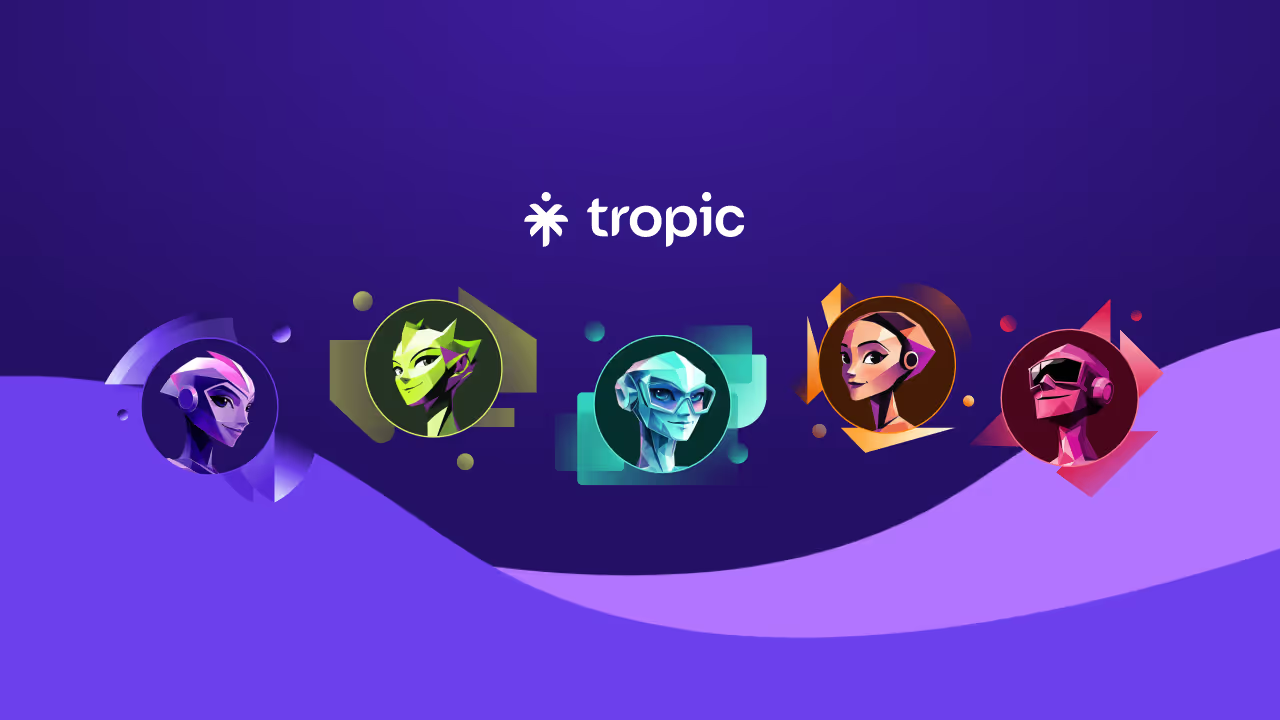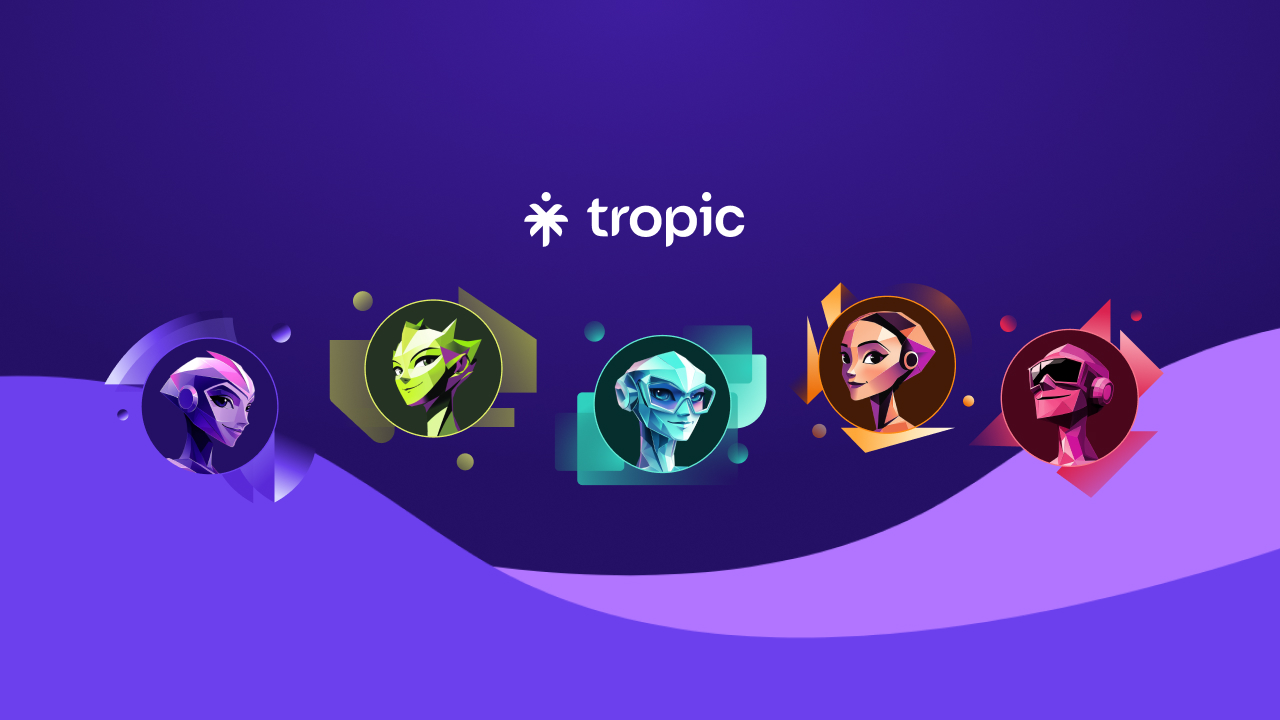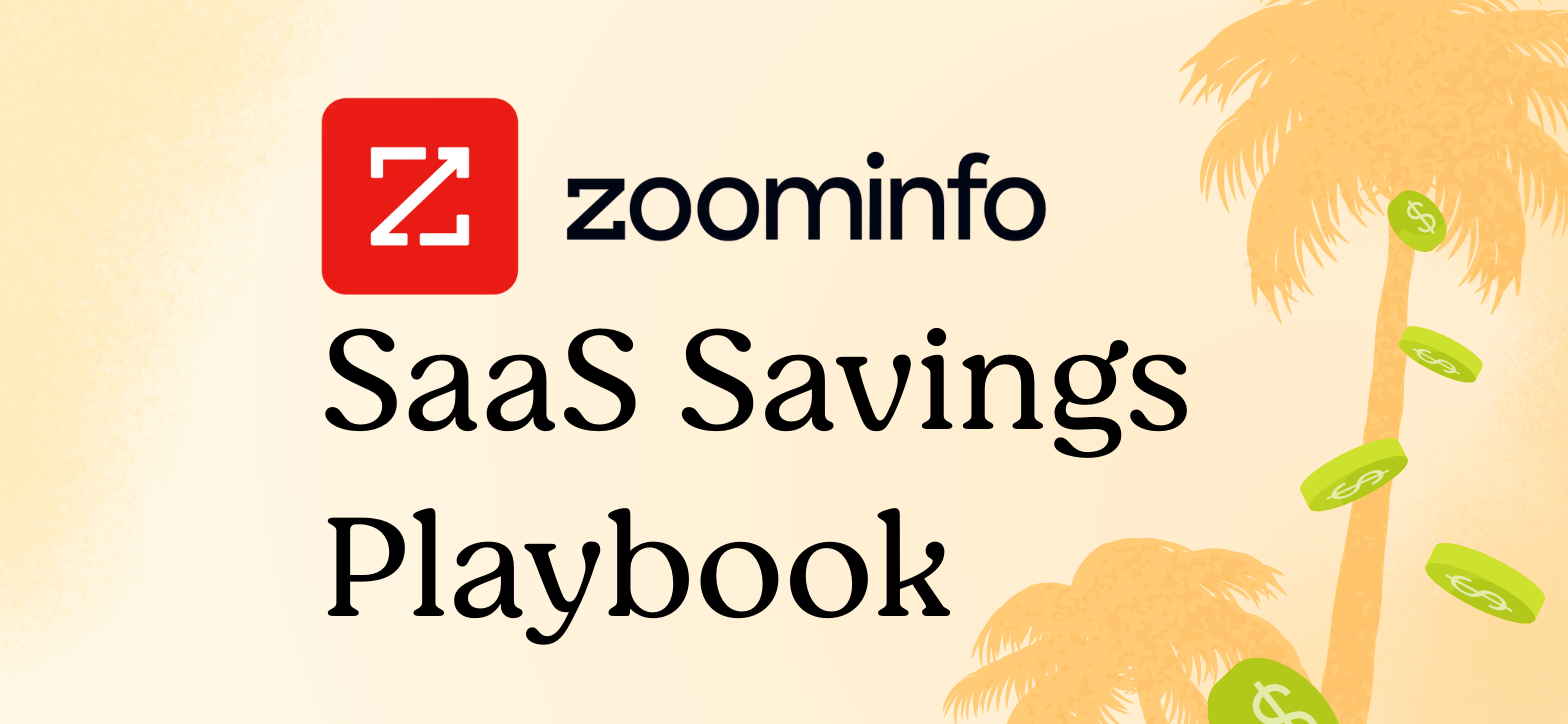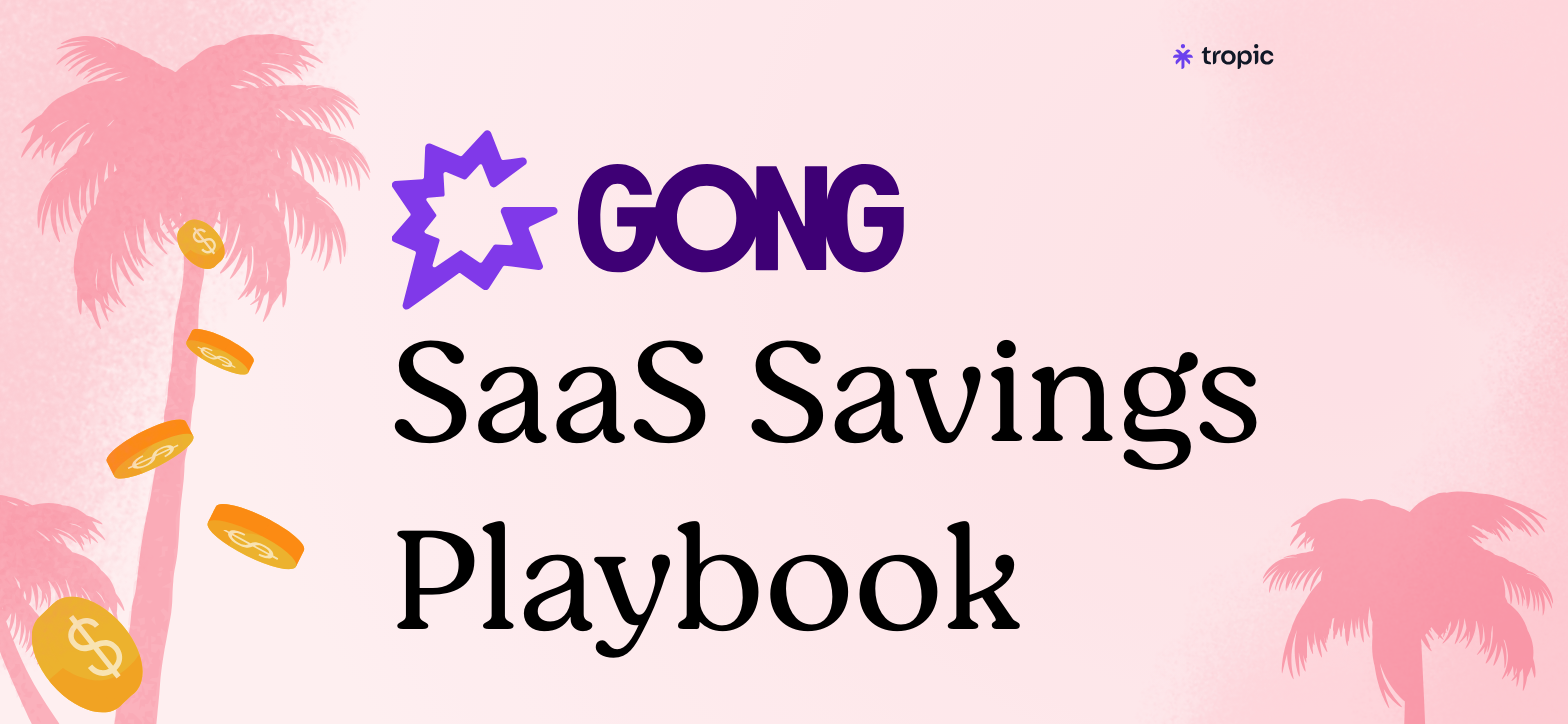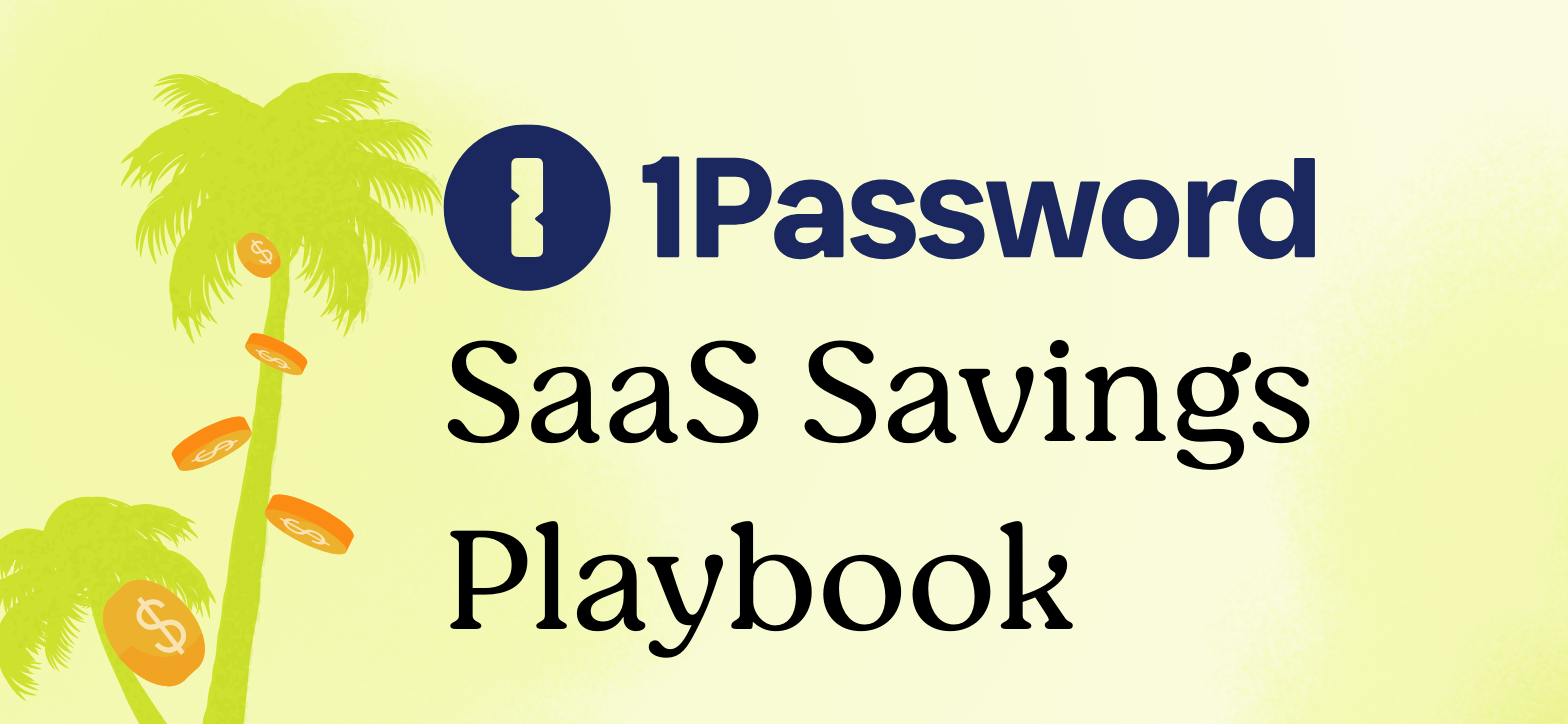The procurement landscape has fundamentally shifted. With 94% of procurement executives now using generative AI weekly and 80% of CPOs prioritizing AI investments (State of AI in Procurement), artificial intelligence has become essential for competitive procurement operations. Organizations that delay AI adoption risk falling behind competitors who are gaining compounding advantages through intelligent automation.
Modern AI procurement platforms don't just digitize workflows—they transform procurement from a reactive cost center into a proactive value driver. The best solutions combine machine learning, predictive analytics, and expert human insights to deliver measurable savings while reducing manual workload by up to 80%.
Top 5 AI Procurement Platforms
1. Tropic
Why Tropic Leads the Market: Unmatched Data Intelligence
Tropic's competitive advantage stems from having the most comprehensive procurement data in the industry: over $13 billion in software spend intelligence spanning thousands of negotiations, contracts, and vendor relationships. This massive dataset enables Tropic's AI to deliver proactive recommendations that create true business impact, rather than simply reacting to spending patterns.
The Data Advantage That Powers Superior AI
While other platforms work with limited data sets or generic market information, Tropic's AI agents are trained on the deepest, most comprehensive procurement intelligence available. This data foundation enables:
- Predictive Cost Optimization: AI identifies potential overspend and contract risks months before renewals, not after problems occur
- Intelligent Vendor Intelligence: Real-time benchmarking against actual negotiated rates from thousands of similar companies, not theoretical market data
- Proactive Risk Mitigation: AI flags supplier risks and compliance issues before they impact operations
- Strategic Renewal Planning: AI provides specific negotiation strategies based on successful outcomes from similar contract scenarios
Proven Results Through Data-Driven Intelligence
In the first half of 2025, Tropic negotiated $362 million in customer spend, delivering $56 million in verified savings—a 15.5% average savings rate. The platform showed 73% growth in supplier intelligence usage and 84% more ARR booking compared to the previous quarter. These results are possible because Tropic's AI doesn't just analyze your data—it leverages the industry's most comprehensive procurement dataset to provide recommendations that actually work.
Key Features:
- AI Global Assistant: Natural language interface powered by comprehensive spend intelligence for accurate, actionable responses
- Intelligent Spend Analysis: Proactively identifies optimization opportunities using benchmarks from $13+ billion in managed spend
- Expert-Backed Negotiations: AI insights combined with human specialists who understand what strategies succeed based on real data
- Predictive Contract Management: AI anticipates renewal risks and opportunities using comprehensive contract intelligence
- Seamless Integrations: Works with existing systems while continuously enriching your data with industry-leading procurement intelligence
Best For: Organizations seeking AI-powered procurement that delivers proactive recommendations and measurable impact based on the industry's most comprehensive data intelligence
2. Zip: Comprehensive but Integration-Dependent
Zip offers a procurement orchestration platform with 50+ AI agents designed to automate purchasing workflows, though the full suite remains in limited rollout.
Strengths:
- Developing suite of 50 AI agents for task automation
- Some established customers including OpenAI, Canva, and Webflow
- Reports $4.4 billion in customer savings since 2020
- User-friendly interface design
Where It Falls Short: Users report "potential limitations in handling complex procurement needs and issues related to customization options or integrations." The platform's effectiveness depends heavily on existing tech stack integration, and some customers note difficulties getting new users motivated to use the product regularly.
The 50 AI agents are still in late 2025 rollout with only select beta customers currently accessing the full suite. While promising, the complexity of managing multiple AI agents may create new operational challenges. Users mention the need for better mobile functionality and more sophisticated reporting capabilities.
Best For: Mid-market to enterprise companies with strong existing tech infrastructure seeking comprehensive automation
3. Vendr: SaaS-Focused but Expensive
Vendr specializes in SaaS procurement and negotiation services, offering basic workflow automation and market benchmarking primarily for software purchases.
Strengths:
- Focused approach to SaaS vendor management and renewals
- Access to pricing benchmarks from $3+ billion in processed spend
- Basic renewal reminders and contract tracking
- Slack integration for workflows
Where It Falls Short: Users report that it's "expensive for what it delivered" and "did not provide great transparency into renewal timelines," making it hard to compare vendors. The platform lacks SaaS management features like user provisioning, license tracking, and has expensive add-ons with key features costing thousands extra per month. Vendr may not have as many advanced customization options compared to competitors, limiting flexibility for unique procurement needs.
The starter plan begins at $36,000 annually, making it cost-prohibitive for smaller organizations. Limited to SaaS-only procurement scope, unlike comprehensive platforms that handle software, hardware, and office procurement.
Best For: Large enterprises with substantial SaaS spend and budget for premium negotiation services
4. Vertice: Cloud-Focused with Limited Scope
Vertice offers spend optimization specifically for SaaS and cloud infrastructure, combining basic procurement workflows with negotiation services.
Strengths:
- Specialized focus on SaaS and cloud spend optimization
- Benchmarking data from 16,000+ vendors
- Manages over $3.4 billion in contract spend
- Basic workflow automation capabilities
Where It Falls Short: Users report that "allocation of contract owners/managers could be more user friendly" and "understanding different spend metrics took some time". The platform is limited to SaaS and cloud optimization, lacking the comprehensive procurement capabilities needed for broader organizational spending.
While they can create workflows for both SaaS and non-SaaS contracts, Vertice would only negotiate SaaS contracts on your behalf, limiting their value for organizations with diverse procurement needs. The pricing model based on guaranteed savings may not provide transparency into actual costs.
Best For: Organizations with significant SaaS and cloud spend seeking specialized optimization services
5. Ramp: Finance-First but Limited Procurement Focus
Ramp provides spend management combining corporate cards, expense management, and basic procurement functionality in a unified financial platform.
Strengths:
- Unified financial operations platform with expense management capabilities
- Some AI-driven automation for expense categorization
- Free core platform option
- Integration with common accounting systems like NetSuite and QuickBooks
Where It Falls Short: While Ramp handles expense management, its procurement capabilities are more limited compared to specialized procurement platforms. The platform is "currently focused on widely-used ERPs and accounting software like NetSuite and QuickBooks, which may limit its applicability for industries with complex supply chain requirements or advanced physical goods procurement needs."
Users mention "limited reporting capabilities for advanced financial analysis" and note that the "mobile app lacks several features available on the desktop version." Ramp's AI focuses primarily on expense categorization and fraud detection rather than strategic procurement intelligence and negotiation support.
Best For: Small to medium businesses seeking unified financial operations with basic procurement automation
Key Considerations When Choosing AI Procurement Software
Data Quality and Intelligence
The effectiveness of AI procurement software is directly tied to the quality and depth of its underlying data. Look for platforms with comprehensive, real-world procurement intelligence rather than limited datasets or theoretical market information. AI trained on extensive negotiation histories, actual contract terms, and verified spend patterns will deliver more accurate recommendations and better outcomes. Platforms with shallow data foundations can only provide generic insights that may not apply to your specific situation.
Ease of Implementation
Leading platforms should minimize deployment time and training requirements. Look for solutions that layer AI intelligence over existing workflows rather than requiring complete system overhauls.
Measurable ROI
AI can cut the time to complete basic procurement tasks by up to 80% according to KPMG research. Prioritize platforms that provide clear metrics on time savings, cost reductions, and process improvements.
Integration Capabilities
Your procurement platform should connect seamlessly with existing ERP, accounting, and business systems. Avoid solutions that create data silos or require extensive custom development.
Scalability
Choose platforms that grow with your organization. The best solutions handle increasing transaction volumes, user counts, and complexity without performance degradation.
Support and Expertise
Beyond technology, look for providers offering strategic guidance: "Apart from the platform itself, which I find incredibly intuitive and versatile, my favorite thing about Tropic has honestly been the Customer Service. Probably the best support I've ever received."
The Future of AI Procurement
2025 will see a major shift towards proactive and prescriptive AI that not only surfaces insights but actively recommends next steps and automates actions, such as suggesting optimized contract terms or flagging redundant vendor relationships.
Organizations implementing AI procurement platforms now position themselves to benefit from continuous improvements as machine learning models become more sophisticated. The greatest value comes from augmenting—not replacing—procurement professionals, freeing teams to focus on strategic activities where human judgment adds the most value.
Making Your Decision
When evaluating AI procurement software, prioritize platforms that combine intelligent automation with expert human support. The most successful implementations merge technological capabilities with strategic procurement expertise to deliver measurable business impact.
For organizations seeking transformative procurement results with minimal implementation complexity, Tropic stands out as the clear leader. Its combination of advanced AI agents, proven savings results, and exceptional customer support creates a compelling value proposition that competitors struggle to match.
Ready to transform your procurement process? The future of intelligent spend management is here—and the organizations that act first will gain the greatest competitive advantages.

